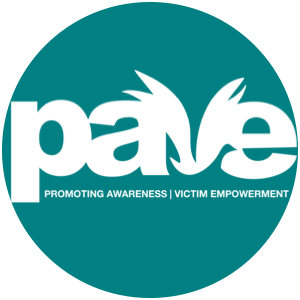Is This What Sisterhood Is?: What to do when a sorority sister discloses to you that they have been sexually assaulted
Is this what sisterhood is?
When we came to college, it was the first thing on our minds. Or maybe it wasn’t. Is this gleaming house, tucked neatly between other mansions, the place that I will call home a year from now? Will I wear sweatshirts with two or three otherwise indecipherable letters on it? Their letters? Will I hold back my friend’s hair in that house’s bathroom, will I run after the bus that I am 30 seconds late for from that front door? Is this my sisterhood?
Or maybe we didn’t think about that at all. But somehow, a month later, or five months later, we ended up in letters that were foreign to us, in a mansion that towered over campus. We held back girls’ hair, and they held back ours. Someone helped us put false lashes on. We caught rides from older sisters. We went to parties in basements with men that we pretended were a lot cuter than they were. And we told ourselves this was what sisterhood was.
We recruited more young women into the chapter with hopes that we realized, or didn’t.. We were warned sternly, strictly, time and time again not to talk about boys, booze, Bible, Biden or budgets. When girls who didn’t know any better asked us about the parties and the men we deftly redirected, and then counted their innocent questions against them.
And then the unthinkable happened. A girl, a woman, a sister, quieter than before. Not going out with us to that one fraternity, and why? Doesn’t she want to come with us? She’s been so weird lately, so quiet. She barely leaves her room. She’s not herself. Freak.
It goes through the grapevine. One girl found out, or maybe she told one girl, and suddenly there is a whisper. A cold breeze of gossip. Did you hear what she did? Or maybe, did you hear what happened to her? How this is framed, of course, depends how close the other women in the sisterhood are with the man who hurt her. She’s a victim if he wasn’t, and a slut if he was. Worse, a liar. The girls brag about their adventures the next morning around the table just like the boys do but a liar, no, she will not come back from that. And so her sisters become her executioners. It is a Russian roulette, to her, a pure guessing game whether this sister believes her, understands her, or not.
So she leaves. Or she stays. She suffers either way, will be suffering for a long time. And when we tell the next group of eighteen-year-old girls praying for a sisterhood that the most important thing to us is not fraternities, is not drinking, is not partying, we will feel less honest. We will remember a girl with a spark we watched dim. We will remember we snuffed it. And we will lie to those little girls, remembering her. And soon they will learn. They will do the same. Or they will be snuffed.
Is this what sisterhood is?
Sorority Women: What to do when a sister discloses to you that they have been sexually assaulted
Sororities and fraternities can be a wonderful part of the college experience. Lifelong friends, philanthropy, special Big/Little relationships… being in a sorority can be hugely beneficial for women during college and beyond. Unfortunately, there is a dark side to sorority life: sorority women are 74% more likely to experience sexual assault than their unaffiliated counterparts (Health Research Funding). How you as a sister and friend react to someone disclosing their sexual assault to you can make or break the beginning of their healing process. Here are some tips on how to react when a sister discloses her sexual assault experience to you:
Listen. Active listening is the foundation of reacting well. No ifs, ands, or buts about it – that is to say, no arguing, and no defending the perpetrator, even if they come from a fraternity your sorority has a generally good relationship with.
Believe. When your sister tells you what has happened, or who has done it, believe her– even if you know the perpetrator or the fraternity well.
Support. It is her choice whether or not to report the incident to local police, university police, the university Title IX department, or any other authority. Support her choice if she decides to report, even if it could get yours or another Greek organization in trouble; and support her if she decides not to. She knows best how she can heal.
Check in. Let her know you are a resource to her, and offer to help her find professional resources on or off campus. Remind her you love her and care about her.
Stand up. If your sorority is aware of the situation and won’t take appropriate measures, like cutting off relationships with fraternities of perpetrators, providing mental health resources and accommodations, or refusing to ban perpetrators from sorority property, stand up for your sister if she wants you to and demand your chapter does the right thing.
Sisterhood only gets stronger through challenging ourselves to do better and to show up for each other. Sororities should be a safe place where women can turn to their sisters in times of crisis. For more resources to help yourself, a sister or a friend, please check out Survivors.org or https://www.npcwomen.org/wp-content/uploads/sites/2037/2017/10/SA-Awareness-Toolkit.pdf.
Written by Spring 2022 Intern Madison Smith
